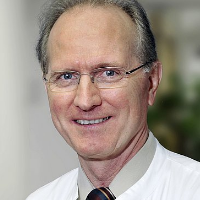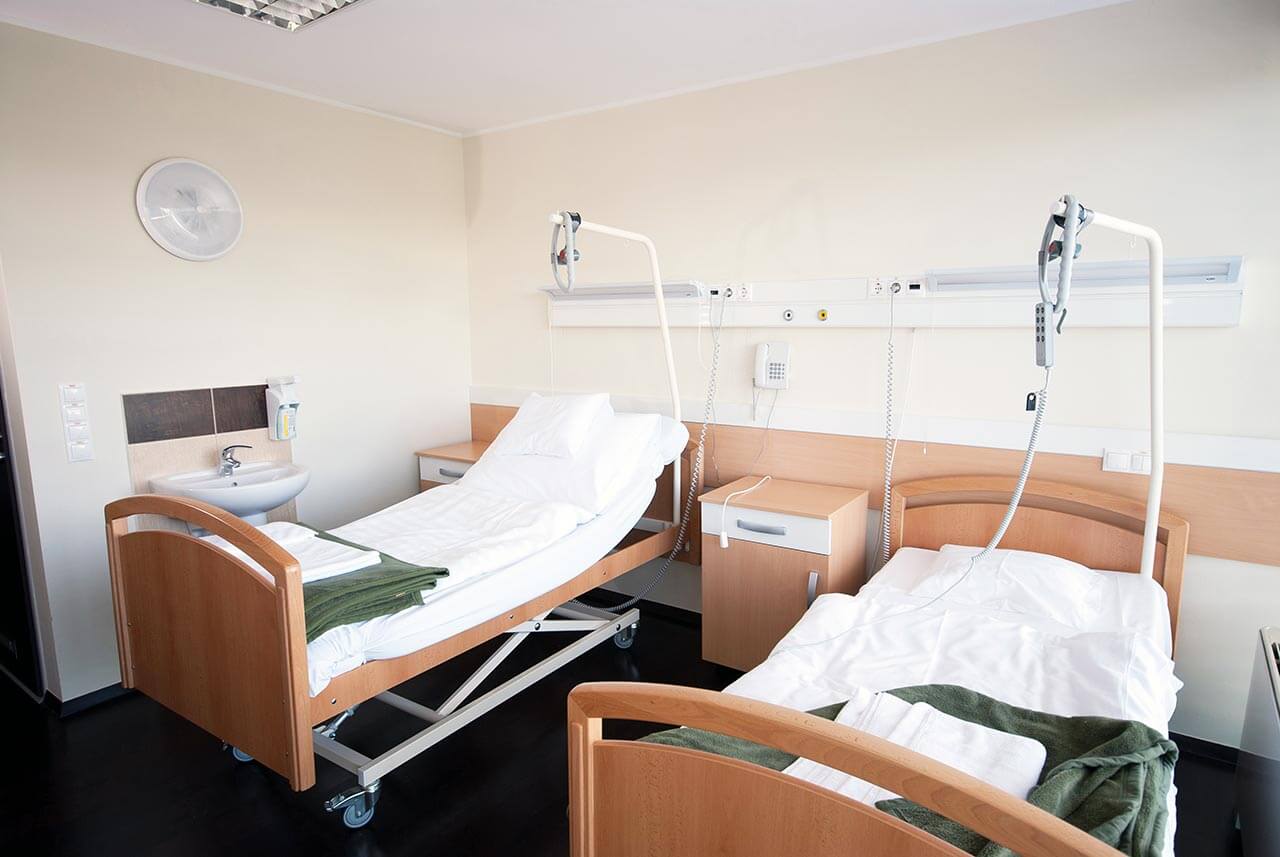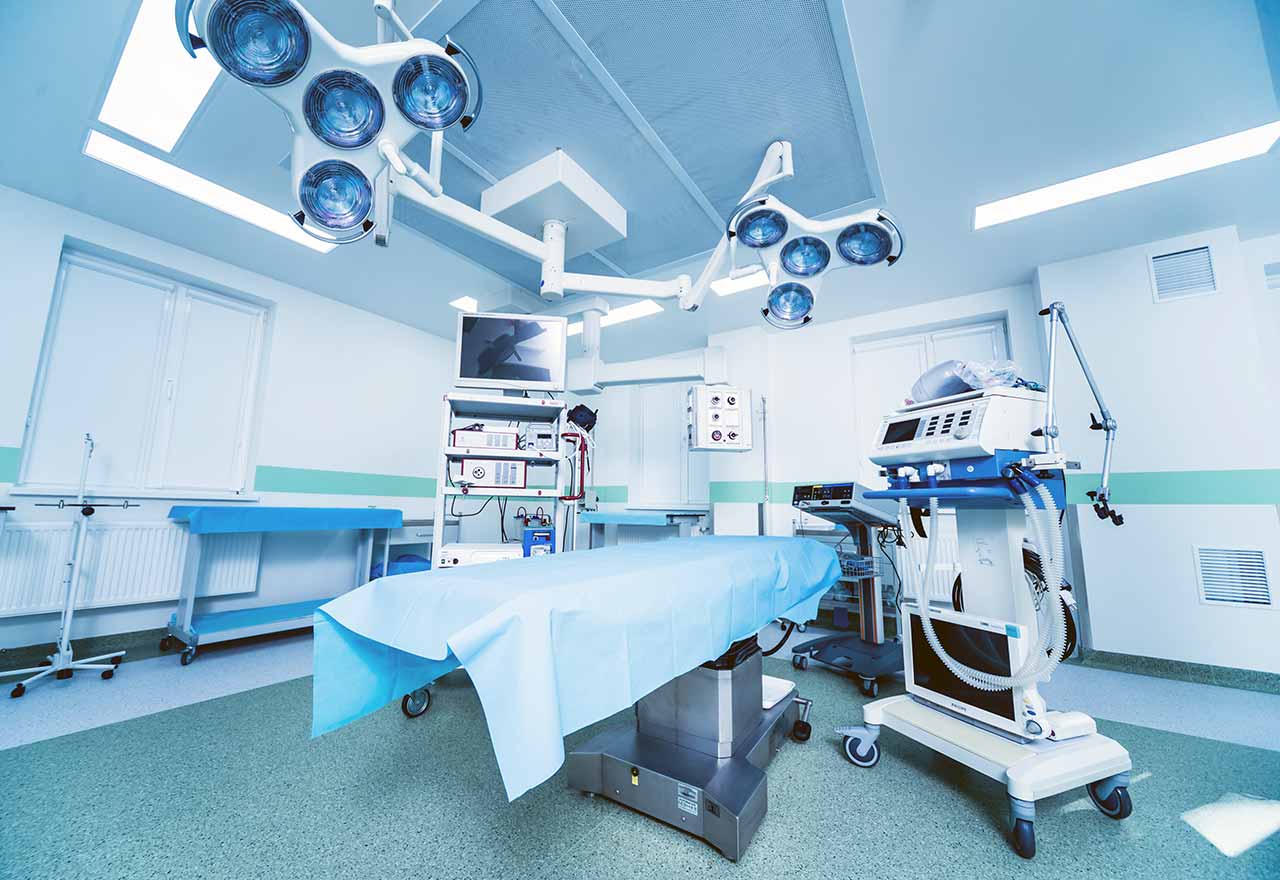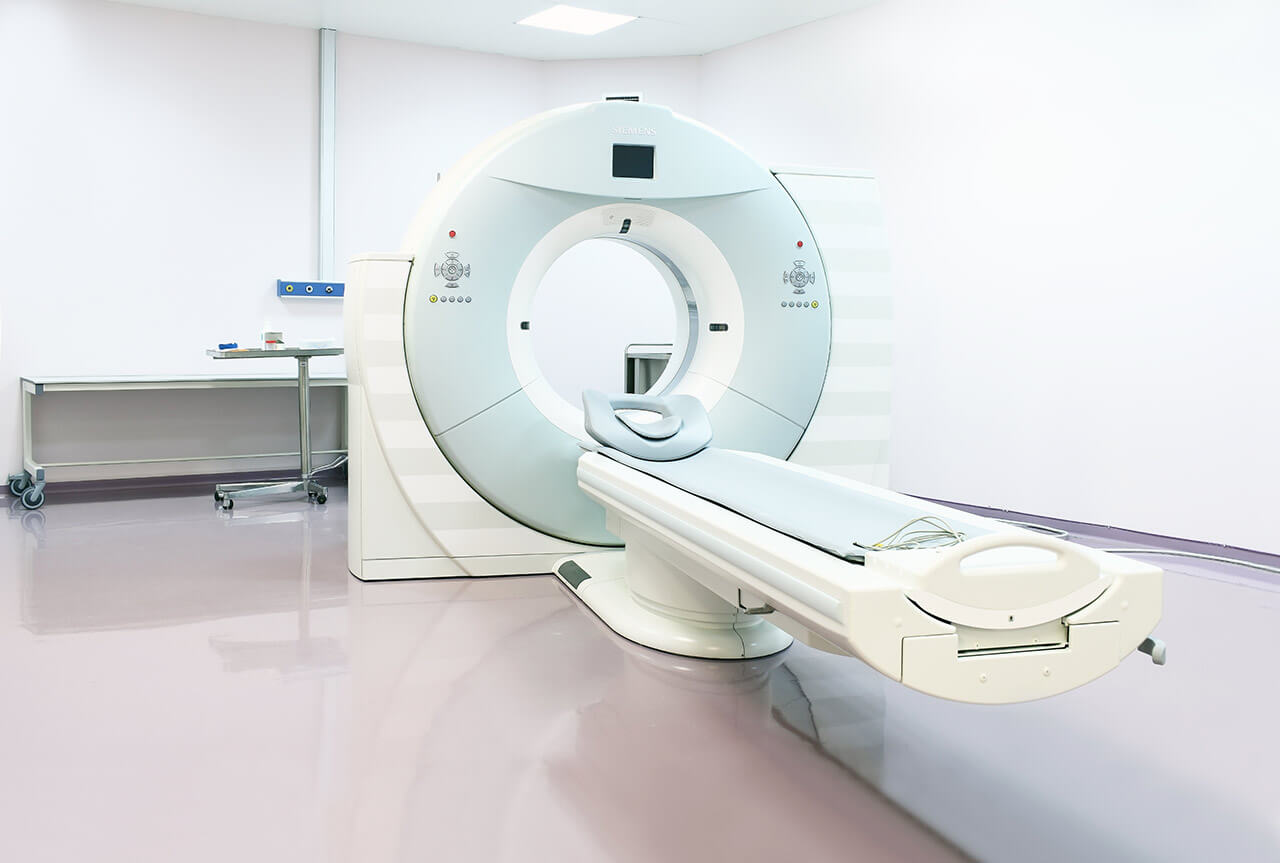
The program includes:
- Initial presentation in the clinic
- clinical history taking
- review of medical records
- physical examination
- laboratory tests:
- complete blood count
- biochemical blood test
- inflammation markers (CRP, ESR)
- blood coagulation analysis (aPTT, PT, INR)
- ultrasound of the abdomen
- gastroscopy with H.pylori test, biopsy
- nursing services
- consultation of related specialists
- treatment by chief physician and all leading experts
- explanation of individual treatment plan
Required documents
- Medical records
- Esophagogastroduodenoscopy (EGD) (if available)
Service
You may also book:
 BookingHealth Price from:
BookingHealth Price from:
About the department
The Department of Pediatric and Adolescent Medicine, Pediatric Cardiology, Pulmonology and Traumatology, Neuropediatrics and Pediatric Epileptology at the HELIOS University Hospital Wuppertal offers all the possibilities of modern medicine for the diagnostics and treatment of young patients in the fields of its competence. The department provides medical care to children of all age groups – from infants to young children and adolescents. Together with the Department of Obstetrics, the medical facility forms the Level I Perinatal Center, which annually provides the necessary care to more than 60 premature babies, weighing less than 1500 g. The department's pediatricians often deal with the treatment of diseases of the gastrointestinal tract, liver, kidneys, bladder, thyroid gland and nervous system, including epilepsy. Young patients with injuries of any severity receive high-quality emergency care that meets modern medical requirements. An important focus of the department's work is on the conservative treatment of lung and heart diseases in children. In addition, the department provides medical care to children with developmental delays and developmental disorders. Neurologists have vast experience in the treatment of epilepsy in young patients, and also have successful experience in the treatment of movement disorders, inflammatory diseases of the central and peripheral nervous system, chronic headaches, multiple sclerosis, cerebral palsy, congenital malformations of the brain and spinal cord. Depending on the particular clinical case, the treatment can be carried out both on an inpatient or outpatient basis. The medical facility has an excellent reputation and is awarded the prestigious quality certificate in the field of pediatrics in Germany – "Ausgezeichnet. Für Kinder!". Young patients and their parents can be confident that they will receive effective and safe treatment. The department is headed by Prof. Dr. med. Stefan Wirth.
The department's doctors often admit young patients with common diseases, namely the pathologies of the digestive system, liver, urinary tract, hematopoietic system, as well as hormonal disorders, including growth disorders (short stature or gigantism) and thyroid diseases. When a child is admitted to the department, the specialists carry out a clinical examination, laboratory tests and instrumental diagnostics using ultrasound and X-ray. Endoscopic diagnostic procedures can also be performed, if necessary. After making an accurate diagnosis, doctors begin planning a course of treatment, which is usually based on the intake of medicines. The treatment regimen is prescribed individually, based on the clinical indications of the child, his age and other important aspects. Severe cases require hospitalization, but it is often possible to undergo outpatient treatment.
A specialized team of doctors with the appropriate qualifications take care of the work of the heart and respiratory system of children. Pediatric cardiology pays special attention to the provision of medical care to children with congenital and acquired heart defects, cardiac rhythm disturbances, infectious heart disease and arterial hypertension. Pediatric pulmonologists specialize in the treatment of acute and chronic lung diseases, including bronchial asthma, chronic bronchitis, pneumonia and cystic fibrosis. Young patients receive a thoroughly elaborated treatment plan with the use of modern medications aimed at relieving symptoms and normalizing the patient's condition.
An equally important field of the department's clinical activities is the treatment of injuries in children. Specially trained pediatric radiologists carry out the necessary examinations: X-ray, CT and MRI scans. The equipment has special protection systems that guarantee the safety of the examination of the child. Traumatic injuries often cause a severe pain syndrome in a child, so the department's doctors carry out effective pain management, after which they decide on the optimal type of treatment for the injury. The department's pediatric traumatologists successfully cope with the treatment of bone fractures, soft tissue injuries, tendon and ligament tears, burn injuries, as well as head injuries and concussion.
The department's doctors pay special attention to the treatment of epilepsy in children. This disorder develops due to the increased electrical activity of certain areas of the brain, and therefore one of the main tasks of doctors is to detect foci of pathological activity and accurately determine their location. Doctors also carry out diagnostic examinations for any comorbidities that can contribute to the development of epileptic seizures. The standard diagnostic protocol includes studying the child's medical history, electroencephalography and magnetic resonance imaging. With the confirmed diagnosis, doctors determine the causes of the development of epilepsy and its type, after which they elaborate an individually tailored treatment regimen. Depending on the type of epilepsy, specialists select the optimal medication or a combination of medications. As a rule, the course of treatment should be continuous and long enough. During treatment, follow-up examinations are regularly carried out to monitor the child's condition and assess the effectiveness of treatment. If, after taking antiepileptic drugs, doctors manage to achieve a stable remission (at least 2 years without epileptic seizures), the dosage of drugs is gradually reduced. A ketogenic diet that is high in fat and low in carbohydrates is often recommended for children suffering from epilepsy. It is clinically proven that this type of diet can significantly reduce the number of epileptic seizures. However, this diet is prescribed by the attending physician, after considering a particular clinical case.
The department's specialists also admit young patients with cerebral palsy. The pathology causes serious movement disorders, as well as balance and postural disorders. The neurological disorder quite often causes mental retardation, speech disorder, hearing loss and vision disorder. Infantile cerebral palsy is usually diagnosed at the age of 1-2 years. The diagnostics involves a clinical examination and instrumental tests, including X-ray, ultrasound and magnetic resonance imaging. The team of the department's doctors carries out conservative treatment of cerebral palsy with the help of botulinum toxin, specially elborated physiotherapeutic programs (for example, Bobath concept, Vojta therapy, Castillo-Morales approach, etc.), therapeutic exercises, massage, sessions with a speech therapist and a psychologist. The goal of therapy is to maximize the restoration of the child's motor functions and prevent disability.
The responsibility of pediatric neurologists also includes medical care to young patients with multiple sclerosis. Recently, it was believed that pathology affects only adults, but today the disease is increasingly common in children. Multiple sclerosis is a chronic autoimmune disease of the nervous system characterized by a remitting course – alternation of remissions and exacerbations. If untreated, multiple sclerosis can cause serious consequences, including motor and sensory impairments, seizures and visual impairments. To confirm the diagnosis, MRI and cerebrospinal fluid analysis are required. Since the pathology remains incurable to this day, the task of the department's specialists is to achieve stable remission and prevent the development of complications of the pathology. Children with this diagnosis need regular medical supervision and pharmacotherapy to control the disease. With the presence of movement disorders, therapeutic exercises, physiotherapy, massage and other treatment methods are used. In addition, children with multiple sclerosis receive professional psychological care.
The department's range of medical services includes:
- Diagnostics and treatment of common diseases
- Diabetes mellitus
- Thyroid diseases
- Growth disorders (short stature and gigantism)
- Gastrointestinal and liver diseases
- Kidney and bladder diseases
- Diseases of the hematopoietic system
- Immune system disorders
- Diagnostics and treatment of heart disease
- Congenital and acquired heart defects
- Cardiac rhythm disturbances (arrhythmias)
- Infectious heart lesions
- Arterial hypertension
- Diagnostics and treatment of pulmonary diseases
- Chronic bronchitis
- Bronchial asthma
- Pneumonia
- Cystic fibrosis
- Diagnostics and treatment of injuries in children
- Bone fractures
- Soft tissue injuries
- Tendon and ligament injuries
- Burn injuries
- Head injuries and concussion
- Diagnostics and treatment of neurological disorders
- Epilepsy
- Cerebral palsy
- Multiple sclerosis
- Chronic headaches
- Congenital malformations of the nervous system
- Autism and autism spectrum disorders
- Mental retardation, speech impairments, impaired concentration
- Diagnostics and treatment of other diseases in children and adolescents
Curriculum vitae
University Education
- 1974 -1981 Study of Medicine in Freiburg, Mainz and Bern.
- 1981 Medical License and Academic Degree of Doctor of Medicine.
Professional Career
- 1981 - 1986 Professional training in the Department of Pediatrics of the University Hospital Mainz. Focuses: endocrinology, neonatology and gastroenterology.
- 1986 - 1990 Doctor at the University Hospital Mainz. Focuses: hepatology, gastroenterology, endocrinology, neonatology.
- July 1990 - October 1996 Senior Physician of the Department of Pediatrics at the University Hospital Mainz.
- Since October 1996 Head of the Department of Pediatric and Adolescent Medicine, Pediatric Cardiology, Pulmonology and Traumatology, Neuropediatrics and Pediatric Epileptology at the HELIOS University Hospital Wuppertal.
- 2001 - 2011 Deputy Medical Director of the HELIOS University Hospital Wuppertal.
- Since December 2009 Head of the Professional Group on Pediatrics of the HELIOS Hospital Group.
- 2000 - 2006 Chairman of the Extraordinary Professors of the Medical Faculty of the Witten/Herdecke University.
- Since 2004 Member of the Commission for Awarding the Degree of Doctor of Medicine, Medical Faculty of the Witten/Herdecke University.
- 2001 - 2009 Deputy Dean for Research at the Medical Faculty of the Witten/Herdecke University.
- Since 2010 Coordinator of the HELIOS University Hospital Wuppertal and the Faculty of Medicine at the Witten/Herdecke University.
Scientific Activities
- 1978 - 1980 Graduation thesis defense at the University Hospital Mainz.
- Since 1987 Development of molecular biological examination methods for chronic hepatitis B, then also hepatitis C and D in childhood.
- January 1993 Venia legendi, Pediatrics.
- September 1998 Extraordinary Professorship at the Witten/Herdecke University.
Other Activities
- Managing Member of the German Society for Pediatric and Adolescent Medicine.
- Editor of the journal on pediatrics.
- Editor of the monthly journal on pediatrics.
Photo of the doctor: (c) Helios Universitätsklinikum Wuppertal
About hospital
According to the prestigious Focus magazine, the HELIOS University Hospital Wuppertal ranks among the top medical facilities in Germany!
The hospital rightfully enjoys the status of the maximum care medical facility and provides its high-quality services in all modern fields of medicine. The hospital operates on the basis of the Witten/Herdecke University, which was opened in 1982 and today is considered one of the best in Germany. Thus, many head physicians of the medical complex are in charge of the corresponding department at the university, which contributes to the close intertwining of research activities and clinical practice. The hospital has long traditions and its own values – the main goal of doctors is to provide comprehensive medical care focused not only on curing the disease, but also on the patient's personal needs.
The hospital has 1,000 beds. The doctors of the medical facility admit more than 50,000 inpatients annually. In addition, more than 100,000 outpatients undergo diagnostic and therapeutic procedures. Such high attendance rates speak for themselves and are undeniable proof of the high-quality medical service of the European level. The medical staff of the hospital has more than 2,500 employees, whose main task is to restore the patient's health and provide him with a decent quality of life.
The hospital has more than 26 specialized departments, as well as many narrowly focused centers and institutes dealing with the treatment of patients suffering from a particular group of diseases: Breast Center, Cancer Center, Cardiology Center, Trauma Center, Spine Center and others. The primary clinical focus of the medical center is cancer treatment.
For more than 25 years, the hospital has been running a special quality management system for medical care, which regulates the aspects of work of the medical staff, compliance with hygiene and safety standards during diagnostics and treatment. Consequently, patients can be sure that their health is in the safe hands of true professionals who work in accordance with the latest medical standards.
Special attention should be paid to the honors of the hospital for excellent patient care. The medical complex has quality certificates from the German Cancer Society (DKG), the German Trauma Society (DGU), the German Cardiac Society (DGK), the German Stroke Society (DSG) and other professional German societies.
Photo: (с) depositphotos
Accommodation in hospital
Patients rooms
The patients of the HELIOS University Hospital Wuppertal live in comfortable single, double, triple and quadruple rooms. Each patient room has an ensuite bathroom with shower and toilet. The standard room furnishings include a comfortable automatically adjustable bed, a bedside table, a wardrobe, a TV and a telephone. The hospital has Wi-Fi (free). For maximum patient comfort, there is a nurse call device on the bedside table. This device allows the patient to control the TV, radio, turn on or off the lights, and adjust the position of the bed.
The patients of the hospital are also offered accommodation in enhanced-comfort rooms. These rooms additionally provide a safe and a free minibar with soft drinks. The enhanced-comfort rooms also have a spacious bathroom with hairdryer, bathrobe, towels and toiletries.
Meals and Menus
The patients of the hospital are offered three meals a day: breakfast, lunch and dinner. The menu offers a variety of delicious dishes to suit all tastes, including dietary and vegetarian options.
The hospital also has a bistro where one can taste delicious hot dishes, cold snacks, desserts, as well as a cup of tea, coffee or refreshments.
The patients staying in enhanced-comfort rooms are offered a separate menu that includes a wider and more refined range of dishes. In addition, fresh fruit, tea, coffee and desserts are delivered to the patient room every day, if desired.
Further details
Standard rooms include:
Religion
The religious services are available upon request.
Accompanying person
During an inpatient program, your accompanying person can stay with you in the patient room or in the hotel of your choice.
Hotel
During an outpatient program, you can stay in the hotel of your choice. Our managers will help you choose the most suitable options.




